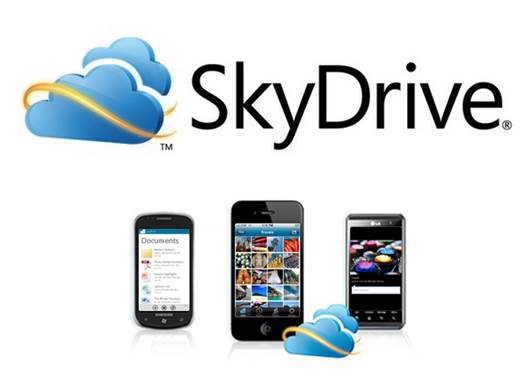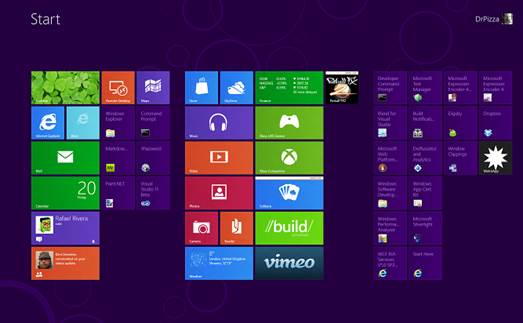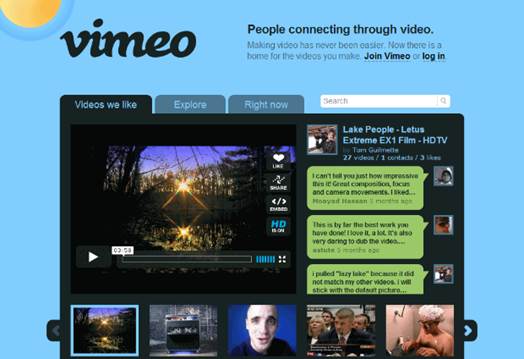This is indeed the one OS to rule
them all. If it were to be built that is...
The last couple of years have seen some
massively disruptive changes in computing, with several new technologies
successfully challenging existing ones. This was particularly noticeable in the
mobile world, where the shift towards computing on smartphones brought with it
the need for specialized mobile platforms.
The different Operating Systems out there
offer a lot of diversity in terms of their philosophy, systems design, user
interface and third party application support. Using a mix of existing
technologies and some extrapolative reasoning, we’ve tried to come up with our
version of what the ideal OS will be like.
The Ideal Operating System Will Not Exist
The Ideal Operating System (or at least,
our version of it) will simply not exist. No we’re not pessimists. In our
vision the ideal OS will quietly disappear into the background, providing all
necessary functions silently and without any outwardly signs. Allow us to
elaborate.

Windows
8 syncs your device’s settings and applications to the cloud via SkyDrive
Imagine a world, where every single
personal computing device is nothing but a terminal connected to a server. (In
some sense, this is true for all internet enabled devices even today). The
device you hold in your hand or the one that’s at your desk, will be nothing
but a display, letting you access your apps and multimedia, all stored in the
cloud. You sign into a device (any device, it doesn’t matter) with your
credentials, and it automatically pulls all your data, applications and media,
hell, even the OS itself will be streamed to you via this network. Think of it
as accessing web mail when you buy a device and load up the webmail URL in a
browser, you know for a fact that your email is going to look exactly the same
as on every other device, without having to worry about the hardware
manufacturer.
“But this already exists” you might say. It
does, to an extent. Windows 8 syncs your device’s settings and applications to
the cloud via SkyDrive, and it’s there for you when you log in. But you can
only access this feature from a Windows 8 desktop, or a phone running Windows
Phone 8 (yes, all 3 units that have been sold so far). A similar feature exists
with the Chromebook, but when was the last time you saw someone using one?
(Hint: Never).

Windows
8 on the desktop
Separating the Hardware from the
Software
What we’d like to see, is a completely
hardware agnostic Operating System (or a generation of Operating Systems, from
competing companies) that can be made to run on any device, because after all a
device is just a means to connect to a server. You will be able to buy
potentially any hard-ware device off the shelf with specifications as per your
need, and use it with any OS of your choice. The device will contain just the
bare minimum in terms of software - only the system software and drivers
required to interface the various hardware components (display, network stack,
power management) with each other. This is analogous to our current BIOS
software, but much more sophisticated (not hard to imagine when you look at
some of the UEFI BIOS versions out there) allowing any OS to be installed on
top of it. Except in this case, “installed” is a term that refers to the act
signing in to an account which pulls in all your data for you.
Head in the cloud...
In order to make these devices ubiquitous
and low-cost, they will offload all hard-ware intensive tasks onto the server.
All important processing or GPU operations will be carried out by the server
itself, and only the output will be streamed back to you. (Think
www.onlive.com) In other words, your device’s hardware won’t be a limiting
factor in its performance. You’ll be able to enjoy high-res games, HD movies,
hell, even transcode audio and video from your portable device, knowing that
all the huffing and puffing is being managed remotely. Furthermore, all media
content like movies, TV shows and music (unless created by you) will be
streamed to you on-demand at a flat fee, hopefully putting an end to digital
piracy. We can almost hear the MPAA and RIAA heave a sigh of relief. Of course,
in the midst of all this, we’re assuming there’s ample bandwidth available.
...But down to earth
But don’t fret yet, we’re not completely
abandoning the concept of locally stored files. We understand that you need
important files and folders available to you at all times, in the event of a
network outage. However, we’d like to change the way we store files locally.
Instead of the current folder-based hierarchy which requires you to memorize
the location of your files (not to mention the number of clicks it takes to get
to a deeply nested folder), we’d like to adopt a flat-hierarchy, where your
files can be retrieved with just a few keystrokes. Maybe even attach tags to
your files to aid faster search. This search engine will integrate data from
both online and offline sources, similar to Ubuntu’s Unity Dash, thus blurring
the line between locally stored content and online data. So say you’re
searching for a particular video; instead of navigating to your Videos folder
and traversing a bunch of subfolders, you can just hit a key to bring up the
search box, start typing into it, and watch the results intelligently appear
from among those on YouTube, Vimeo and other video sharing sites, as well as
those stored locally. So if you’re searching for a video of a cat, the engine
will be able to process the contents of a video, determine that the video
features a cat, and display it in the results, even if the actual filename
doesn’t contain the word ‘cat’. Such algorithms exist in a nascent state, examples being
Soundhound or Shazam that fingerprint songs, and identify sound clips by
comparing this information against a database of known songs.

Vimeo
is a U.S. based video sharing website on which users can upload, share and view
videos.